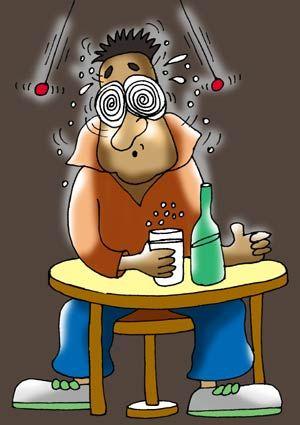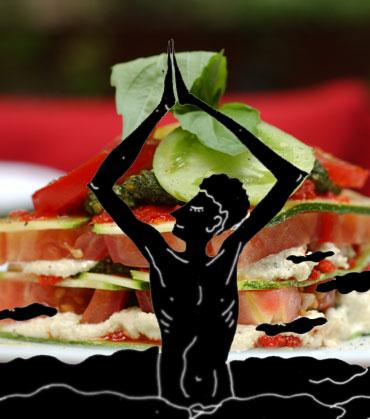
There's more and more research indicating that, in some ways, food and mood are connected. Apart from the simple diet mistakes which lead to low mood and low blood sugar, or the up and down graph of the glycemic index, severe restrictions can lead to deficiency of the neurotransmitters -- brain chemicals which regulate behaviour.
The body manufactures the neurotransmitters such as dopamine, endorphin, glutamine and serotonin for which it uses certain nutrients like amino acids, minerals, fatty acids, protein, and carbohydrates.
If you are not eating enough of the right food, it can lead to deficiency of these chemicals leading to anxiety and depression. While for a person already in this state, you would observe dramatic changes in the eating pattern. They eat less and have a very low energy level.
Here are some tips on what to eat to avoid such a state:
e...

1. Too many swings in the blood sugar level can be a cause of depression.
Therefore, aim at keeping your blood sugar level steady by eating small meals and healthy snacks distributed equally throughout the day. Don't skip meals, especially breakfast.
Some people try to self-medicate themselves for depression by loading themselves with carbs, which increases the secretion of serotonin (a neurotransmitter responsible for making you feel relaxed, bringing up the mood and appetite, and causing sleepiness).
However, eating the wrong type of carbs can have the opposite effect.
Limit sugary foods or simple carbs as they can make your blood sugar level to rise and fall quickly, leading to low blood sugar (symptoms include fatigue, depression, anxiety and irritability).
Instead opt for complex carbs, such as whole grains, fruits and vegetables. They deliver a steady supply of sugar to the bloodstream and hence, your blood sugar level does not spike or drop too drastically.

2. Don't go on an extremely low fat diet
Your body needs some amount of fat to keep the mood up and for the normal production of the brain related secretions.
Ensure a good intake of mono-unsaturated fatty acids (MUFA) through peanut oil and fish, and avoid too much of saturated fats like ghee, butter and margarine. Also, get plenty of omega-3 fatty acids.
Recently, some studies have revealed that a deficit of omega-3 fatty acids is associated with depression. You can get omega-3 fatty acids from fatty fish (salmon, tuna, mackerel and sardines), flaxseed and walnuts.

3. Make fresh fruits and vegetables the central part of a healthy diet.
Depressed people are often deficient in many vitamins and minerals.
Getting enough vitamin B6 (from meat, fish, banana, potatoes and whole grains), vitamin B12 (from fish and low-fat dairy products), folic acid (from green leafy vegetables, oranges, lentils, corns, peas, nuts and seeds), vitamin C (from amla -- Indian gooseberry, lemon, all citrus fruits and vegetables) and zinc(besan) is essential for your body to manufacture neurotransmitters that regulate mood.

5. Limit your consumption of alcohol, coffee and other caffeinated beverages.
High caffeine consumption has been linked with depression in few studies. And, alcohol functions as a brain depressant and interferes with mood, sleep, and motivation.

5. Maintain a balanced diet
Don't follow any diet where you have to cut down on the entire food group, for example -- Atkins diet.

6. Foods rich in tryptophan
When you are feeling low, try eating a meal rich in the amino acid tryptophan like chicken, turkey breast or milk. Tryptophan is used by your body to make mood-enhancing serotonin.
You can also add carbs for its better absorption, for example - a vegetable roll or bread slice.

7. Exercising is a very good way of activating the body and mind.
The endorphins released during exercise seem to have a mood-elevating effect. Engross yourself for at least 20 minutes in a physical activity, sport or exercise.
This helps in reducing the severity of anxiety disorder symptoms and anxiety attacks.